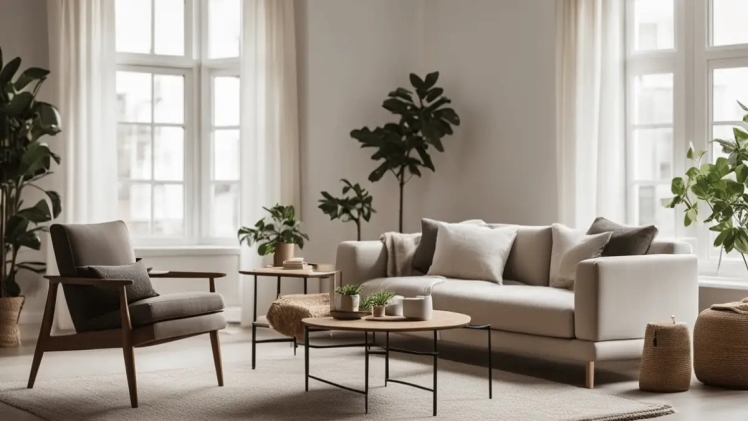Minimalist living has been gaining momentum for several years, and in 2024, it’s more than just a trend—it’s a lifestyle choice that resonates with a growing number of people. This surge in popularity can be attributed to several factors, including the quest for mental clarity, financial freedom, environmental sustainability, and a more intentional way of life. Here’s a closer look at why minimalist living takes over in 2024.
1. Mental Clarity and Reduced Stress
One primary reason people gravitate toward minimalist living is the mental clarity and reduced stress of decluttering. Simplifying one’s environment can lead to significant psychological benefits in a world overwhelmed by information and material excess.
- Less Clutter, More Focus: By removing unnecessary items, individuals can create a more serene and organized living space, enhancing focus and productivity.
- Mental Health: Studies have shown that a cluttered environment can contribute to feelings of anxiety and depression. Minimalist living promotes a cleaner, more orderly space, which can improve overall mental health.
2. Financial Freedom
Minimalist living also offers a pathway to financial freedom. Individuals can significantly reduce their expenses and improve their financial health by prioritising needs over wants and focusing on essential purchases.
- Reduced Spending: With fewer purchases, minimalists save money on items they don’t need, which can be redirected towards savings, investments, or experiences.
- Debt Reduction: Many people adopt minimalism to pay off debt. By cutting out non-essential spending, they can allocate more funds to debt repayment, leading to financial stability and freedom.
3. Environmental Sustainability
As concerns about climate change and environmental degradation continue to rise, many people are turning to minimalist living to reduce their ecological footprint.
- Less Waste: Minimalism encourages the reduction of waste through mindful consumption. This means fewer items are in landfills and less demand for new products.
- Sustainable Choices: Minimalists often prioritize high-quality, sustainable products over cheap, disposable ones, leading to a more eco-friendly lifestyle.
4. Intentional Living
Minimalism is about more than just decluttering; it’s about living intentionally. This involves conscious choices about spending time, money, and energy, leading to a more fulfilling and purposeful life.
- Prioritizing Experiences: Many minimalists invest in experiences rather than material possessions, valuing memories and personal growth over the accumulation of goods.
- Quality over Quantity: Minimalist living encourages individuals to focus on quality—whether in relationships, work, or possessions—leading to a more meaningful and satisfying life.
5. Digital Minimalism
In the digital age, minimalism extends beyond physical possessions, including our digital lives. Digital minimalism involves decluttering digital spaces, reducing screen time, and focusing on essential digital activities.
- Reduced Screen Time: Individuals can reduce screen time by minimizing unnecessary digital interactions, improving mental health and well-being.
- Digital Declutter: Organizing digital files, unsubscribing from unnecessary emails, and limiting social media use can lead to a more efficient and stress-free digital life.
6. Community and Connection
Minimalism fosters a sense of community and connection. As people move away from consumerism, they often invest more time and energy in relationships and community activities.
- Building Connections: Minimalists often seek meaningful connections and community involvement, prioritizing relationships over material possessions.
- Shared Values: The minimalist community is growing, with more people sharing their journeys and supporting each other in living intentionally and sustainably.
7. Resilience and Adaptability
The events of recent years, including the global pandemic, have highlighted the importance of resilience and adaptability. Minimalist living promotes a lifestyle that is flexible and adaptable to change.
- Preparedness: With fewer possessions and a focus on essentials, minimalists are often better prepared to handle unexpected changes and challenges.
- Adaptability: A minimalist mindset encourages adaptability and resourcefulness, invaluable qualities in uncertain times.
Conclusion
Minimalist living is taking over in 2024 because it addresses some of the most pressing issues of our time: mental health, financial stability, environmental sustainability, and the need for intentional, meaningful living. By embracing minimalism, individuals can create a more balanced, fulfilling life free from the excesses of consumerism. Whether decluttering physical spaces, simplifying digital lives, or making more intentional choices, minimalist living offers a path to greater well-being and a more sustainable future.

